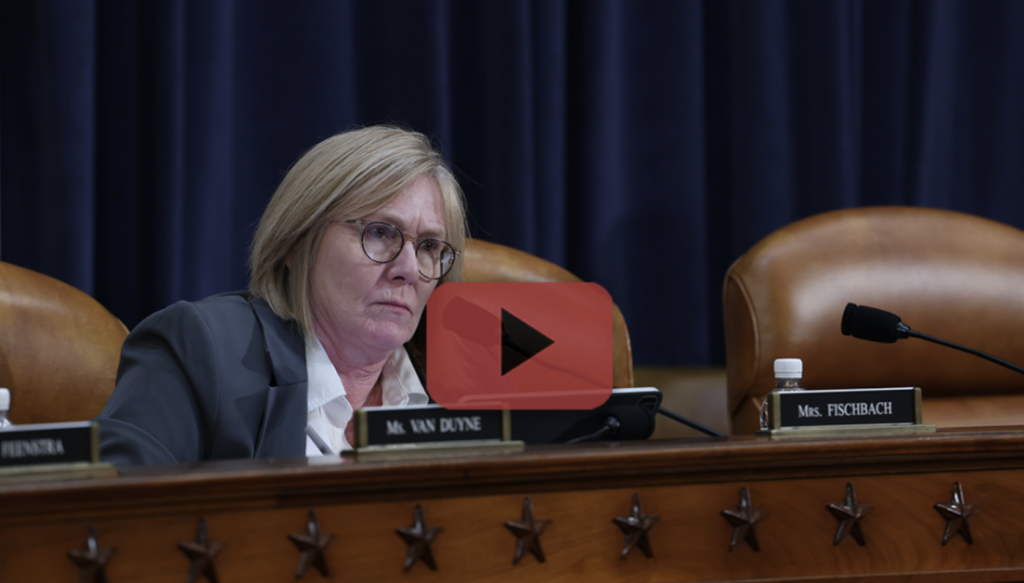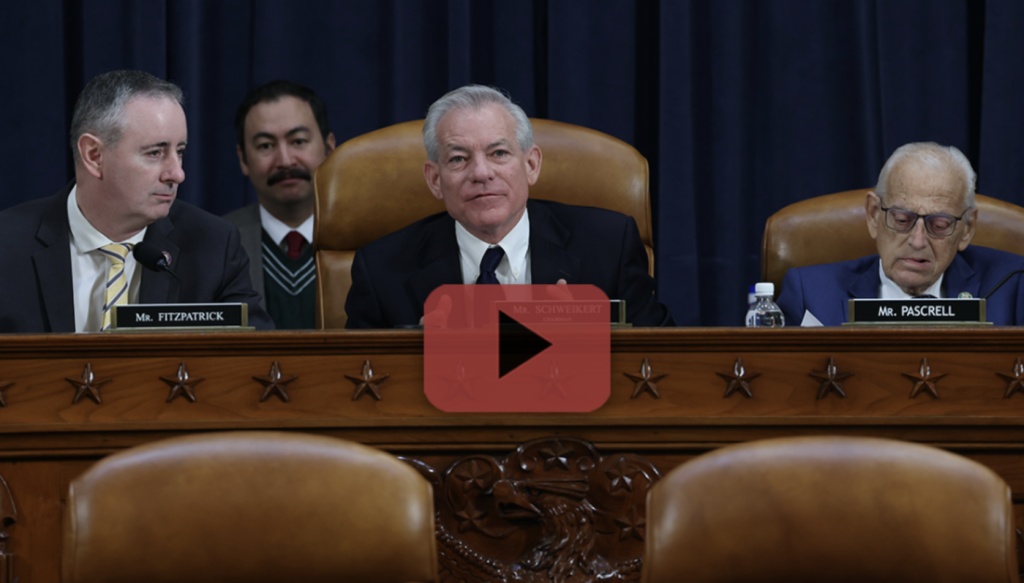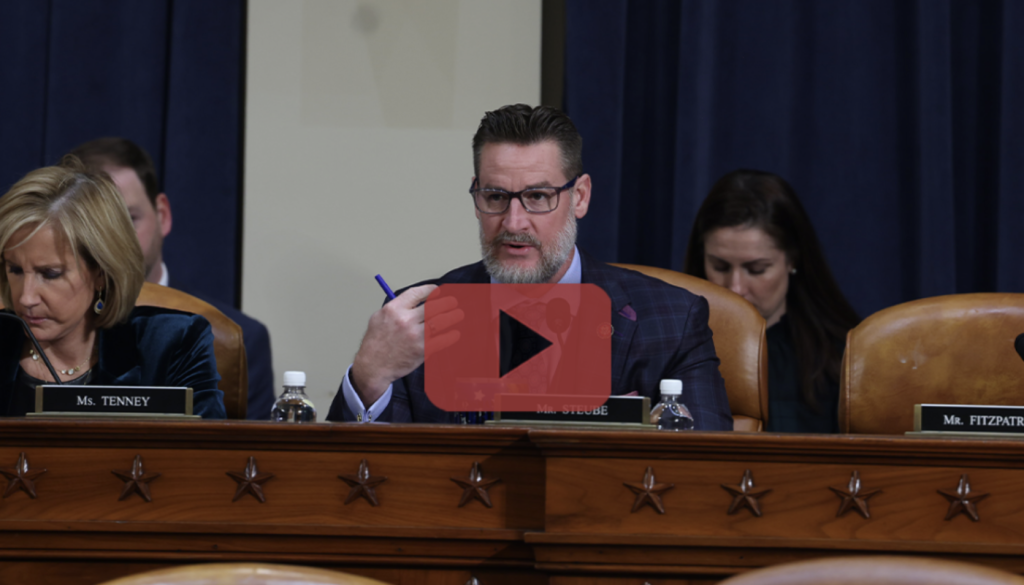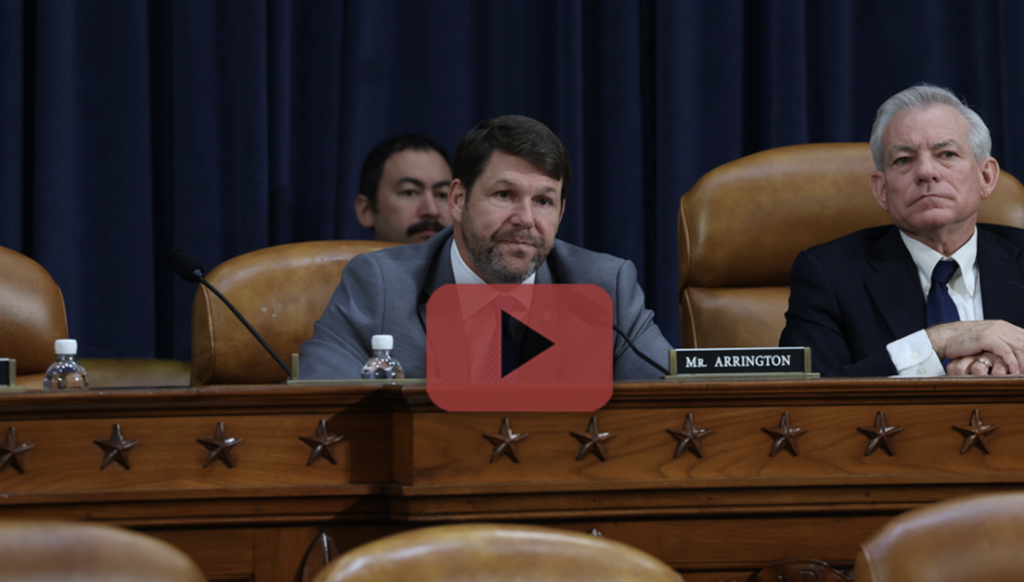Four Key Moments from Oversight Subcommittee Hearing on the Federal Debt’s Rising Interest Costs
WASHINGTON, D.C. – Federal budget experts warned of the disastrous impact on working families and federal government finances from rising interest payments on the fast-growing national debt, currently approaching $34 trillion, during a Ways and Means Oversight Subcommittee hearing. Debt servicing costs are currently ranked as the fourth largest item in the federal budget, behind Social Security, Medicare, and defense spending. In fiscal year 2023, the federal net interest was $659 billion, an unbelievable 40 percent increase from 2022, and interest payments are expected to rise past $1 trillion next year.
Rising interest rates, and the associated cost of servicing federal debt, are a direct result of President Biden and Democrats’ inflationary spending spree. Families are already struggling with the highest interest rates in 23 years, raising the average mortgage payment by an extra $1,093 per month since President Biden took office.
“This Is Not A Game”: Unstable U.S. Bond Market Hurts Global Economy
Everyone from families buying a home, small businesses getting a loan, banks lending money, and hardworking Americans buying a new truck are affected by the U.S. bond market. Washington’s failure to rein in out-of-control spending and debt could prompt bond rating agencies to further downgrade the federal government’s credit rating, leading to declining demand for U.S. bonds. Oversight Subcommittee Chairman David Schweikert (AZ-01) highlighted how the issue of federal interest payments is critical, because it affects every American and most people around the world.
Rep. Schweikert: “As we move forward, the seriousness of this market, the seriousness of U.S. sovereigns in the world, the place it plays in the U.S. and the world economy, I think is not completely understood…In many ways, this is the lubricant that makes much of the world economy work…This is not a game…Movements in this market can actually have cascade effects. And that’s why we’re hunting for stability.”
Tax Cuts and Jobs Act Is The Fix for Democrats’ “Tax Gap”
The Democrats’ solution to the federal government’s $1 trillion-plus annual deficits driving high interest payments is to invent the existence of a huge “tax gap,” primarily created by wealthy Americans avoiding paying their share of taxes. Last year, Democrats even used this gap between income taxes owed and incomes taxes paid to justify giving the IRS $80 billion to increase audits on middle-class families. In response to Rep. Greg Steube (FL-17), a federal budget expert debunked this myth and pointed out that it was actually the Republican-passed Tax Cuts and Jobs Act that made the tax code more progressive and letting the law expire, as President Biden and Congressional Democrats hope, would actually force middle-income earners to pay higher taxes.
Rep. Steube: “So in the last exchange with Mr. Pascrell, Mr. Kogan was talking about if we were able to magically get $600 billion of taxes from people to pay what they’re supposed to pay. Do you guys have any response to that? Or do you have a difference of opinion on that issue?”
Dr. Michael Faulkender, federal budget expert: “Remember that the Tax Cuts and Jobs Act, for instance, made the tax code more progressive, not less, and so you’re talking about a time of an affordability crisis for many American households, and the argument seems to be if only middle class taxpayers were paying more taxes.
Higher Interest Rates for Washington Means Higher Mortgage Payments for Families Across America
Mortgage rates, which hit a 23-year high in October, are closely tied to yields on 10-year Treasury bills. President Biden and Washington Democrats’ reckless spending is directly responsible for this rise in interest rates, as the Federal Reserve has been forced to raise rates 11 times since Biden became President to combat the inflation created by this flood of new spending. As Rep. Michelle Fischbach (MN-07) said, these interest rate hikes have squeezed the “American family budget.”

Rep. Fischbach: “Maybe you could describe the impact higher Treasury yields have on the American family in layman’s terms. What is it really doing to the American family budget?”
Dr. Michael Faulkender, federal budget expert: “The mortgage rate that the American household pays on their 30-year mortgage is going to be priced off of the 10-year Treasury bond. Think about where 10-year Treasury bond yields were back in the 2020-2021 timeframe. They were around 1 percent. Therefore, households were able to get 30-year mortgages at around 3 percent…Today, the 10-year bond is closer to 4, 4.5 percent. So you’ve got mortgage rates closer to 7 percent. Again, as the 10-year Treasury yield went up, so did the borrowing rate for households. This has enormous problems because for instance, a $250,000 mortgage on a house back in early 2021, would have about $1,000 a month in principal and interest payment. At today’s interest rates that would be closer to $1,700 per month. That doesn’t just make homeownership less affordable for people newly looking to purchase a home, but it also means that people are somewhat trapped in their existing homes…Right now, if you move, you don’t get to take your mortgage rate with you.”
“Economic Collapse”: The Danger of $1 Trillion-Plus Deficits, Higher Interest Rates, and Over-Reliance on Short Term Debt Issuances
In October 2023, Treasury announced that it would increase issuance of shorter-maturity securities while also slowing the pace of longer-term securities. On November 1, the Treasury Borrowing Advisory Committee noted that, “while there is still reasonable demand for U.S. Treasurys from many domestic and international market participants, it has not kept pace with the increase in supply.” Rep. Jodey Arrington (TX-19) highlighted the danger of reduced demand for longer-term Treasurys.
Rep. Arrington: “Help me understand that dynamic: the shift to short term Treasury issuance versus long term with higher yields and lower costs. What are the implications of that?”
Dr. Kent Smetters, federal budget expert: “The cycle that you mentioned is exactly the right word. You could issue enough debt, that interest rates become high enough that you actually now have to issue even more debt and interest rates go up even more…It looks like in the short term, that’s a win we’re taking advantage of lower rates. The problem is that you now take on more rollover risk, and that’s not being priced into the budget. That’s really a budget bias right now.”



